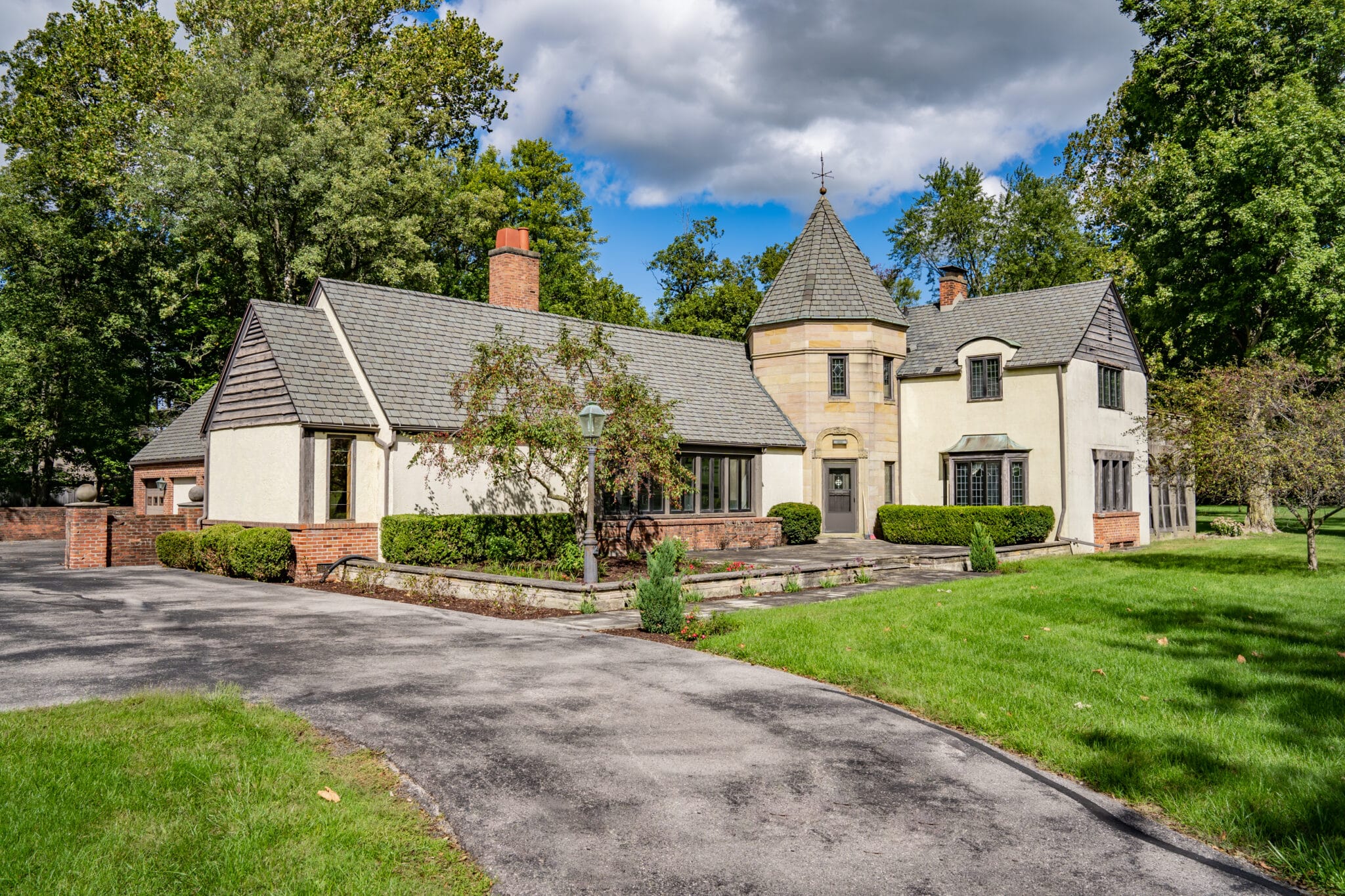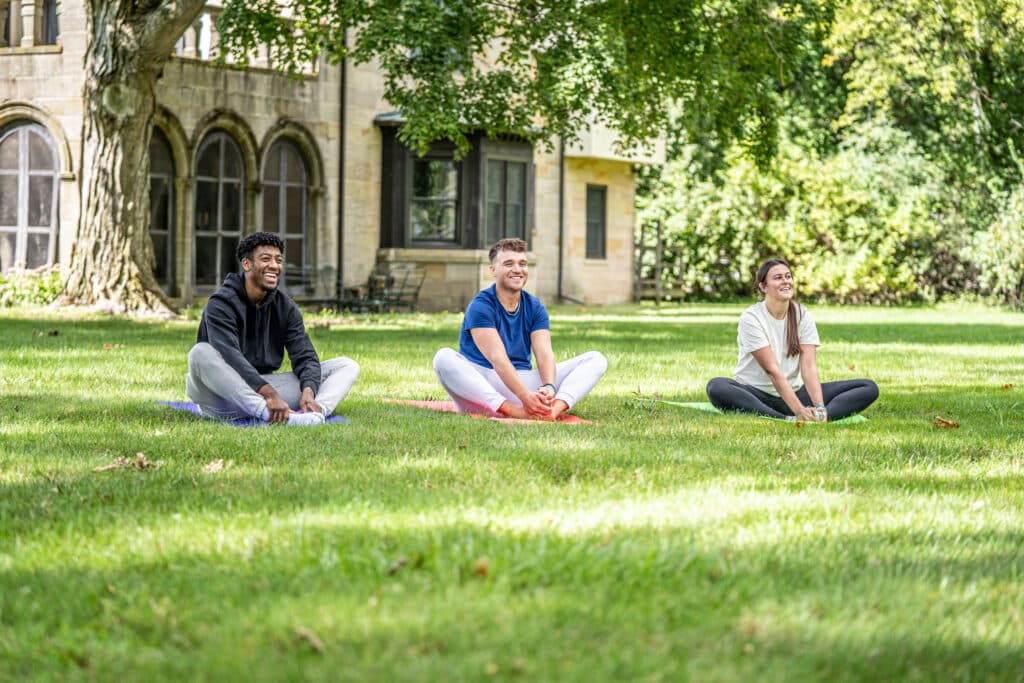Residential Mental Health Program At Ohio Recovery Center

Medically Reviewed By: Manish Mishra, MBBS
Mental health issues can be overwhelming and distressing, but the treatment team here at ORC is ready with the experience, education, and empathy required to help people regain a sense of well-being and live a fulfilling life.

Our peaceful countryside campus provides the perfect setting for healing all aspects of your mental health.
In addition to 24/7 access to medical, clinical, and psychiatric care and support, our short-term residential mental health program gives you the chance to rest, reflect, connect with peers, and learn essential life skills.
ORC’s trauma-informed residential program can help you stabilize during a crisis or “step down” from inpatient mental health care before beginning outpatient treatment. During your stay, you will learn more about your condition, develop a broad range of tools for improving your well-being in the long term, and gain the confidence that comes with knowing you will be all right.
Our programs can help people facing the following mental health disorders:
- anxiety disorders, such as generalized anxiety disorder, panic disorder, and social anxiety disorder
- attention-deficit/hyperactivity disorder (ADHD)
- bipolar disorder
- borderline personality disorder (BPD)
- depression
- eating disorders, such as anorexia nervosa and bulimia nervosa
- obsessive-compulsive disorder (OCD)
- post-traumatic stress disorder (PTSD)
- schizophrenia
Creating Personalized Treatment For You
When you begin Ohio Recovery Center’s residential program, our team of psychiatric nurse practitioners and clinical care providers will evaluate your needs and goals to create a personalized treatment plan that addresses all of them.
Your treatment plan may include:
- short-term stabilization
- medication management
- individual and group psychotherapy
- recovery support services
- wellness activities
Staying at our treatment facility for a period of 14 to 18 days gives you the opportunity to learn how to tend to your mental health during day-to-day living, with a care team always available to provide guidance and support.
Short-Term Stabilization
Our residential services for mental health help clients stabilize during a crisis through a multidisciplinary approach.
Stabilization services available at ORC include:
- psychiatric monitoring and evaluation
- daily living skills training
- social activities
- counseling
- ongoing treatment planning
These services are ideal for individuals and families seeking an alternative to inpatient psychiatric hospitalization.
Medication Management
Clients on the pathway to improved well-being and mental health at ORC may have their medications adjusted, if required, such as changing the dose. Our psychiatric treatment team, including a psychiatrist and psychiatric nurse practitioners, determine medication adjustment needs.
Individual & Group Psychotherapy
During your stay at ORC, you will receive multiple sessions of evidence-based psychotherapy each day. Psychotherapy is available one-on-one with your care team clinician as well as in process group settings.
Some of the psychotherapies we offer include:
- cognitive behavioral therapy (CBT)
- dialectical behavior therapy (DBT)
- community reinforcement approach (CRA)
- family psychoeducation therapy
- eye movement desensitization and reprocessing therapy (EMDR)
- exposure therapy
- interpersonal psychotherapy (IPT)
Group therapy plays an important role in mental health treatment at ORC. Our clinical experts facilitate each session to help participants feel validated and supported by others with similar life experiences.
Recovery Support Services
Although not necessarily considered a formal aspect of treatment, support services help you maintain lasting recovery. One way they do this is by educating you and your loved ones about your condition. They can also help you gain the skills and confidence to live a healthy life on your own terms.
Our recovery support options include:
- psychoeducation groups
- self-help and support groups
- coping skills development
- family counseling
- vocational training
- independent living training
- case management
- aftercare planning
Wellness Activities
It’s important for anyone who wants to be healthy to engage in activities that promote their overall sense of wellness. That’s why we offer a wide range of activities to encourage and support our clients’ wellness-related interests.

These include:
- exercise classes and equipment at our on-site gym and fitness center
- yoga classes
- mindfulness meditation classes
- nutritional meal-planning
- arts and crafts
- hiking trails, campfires, and other outdoor recreation opportunities
- game nights, movie nights, karaoke, and other social activities
Seek Mental Health Treatment At ORC Today
There’s more to learn about our mental health program. Please call us today if you have any questions.
- National Alliance on Mental Illness — Getting Treatment During a Crisis https://www.nami.org/About-Mental-Illness/Treatment/Getting-Treatment-During-a-Crisis
- National Alliance on Mental Illness — Residential Treatment https://www.nami.org/Your-Journey/Kids-Teens-and-Young-Adults/Kids/Residential-Treatment
- National Institute of Mental Health — Mental Health Medications https://www.nimh.nih.gov/health/topics/mental-health-medications
- National Institute of Mental Health — Mental Illness https://www.nimh.nih.gov/health/statistics/mental-illness

